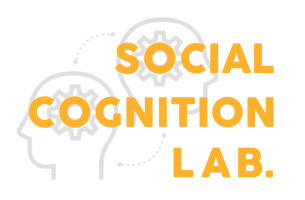- Marcowski, P., Białaszek, W., & Winkielman, P. (2025). Effort can have positive, negative, and non-monotonic impacts on outcome value in economic choice. Journal of Experimental Psychology: General. https://doi.org/10.1037/xge0001738, OSF archive (with pre-print), Model Visualizer.
- Jiang, Y., Marcowski, P., Ryazanov. A., & Winkielman, P. (2023). People conform to social norms when gambling with lives or money. Scientific Reports, 13:853. Online version here.
- Arnold, A. J., Winkielman, P. (2020). Smile (but only deliberately) though your heart is aching: Loneliness is associated with impaired spontaneous smile mimicry. Social Neuroscience. https://doi.org/10.1080/17470919.2020.1809516.
- Psychology Today: The Link Between Loneliness and Smiling
What signals do lonely people send in social interaction?
- Psychology Today: The Link Between Loneliness and Smiling
- Frankowska, N., Parzuchowski, M., Wojciszke, B., Olszanowski, M., & Winkielman, P. (2019). Rear Negativity: Verbal messages coming from behind are perceived as more negative. European Journal of Social Psychology, 50, 889-902.
- Winkielman, P., & Gogolushko, Y. (2018). Influence of Suboptimally and Optimally Presented Affective Pictures and Words on Consumption-Related Behavior. Frontiers in Psychology, 8:2261. doi: 10.3389/fpsyg.2017.02261.
- Carr, E.W., Brady, T.F., & Winkielman, P. (2017). Are you smiling or have I seen you before? Familiarity makes faces look happier. Psychological Science, 28, 1087-1102.
- Owen, H. E., Halberstadt, J., Carr, E. W., & Winkielman, P. (2016). Johnny Depp, reconsidered: How category-relative processing fluency determines the appeal of gender ambiguity. PLoS ONE, 11(2), e0146328. Link with downloadable PDF.
- Washington Post
- Daily Mail
- New York Times
- Nauka w Polsce (po Polsku, in Polish)
- Hofree, G., Ruvolo, P., Bartlett, M.S, & Winkielman, P. (2014). Bridging the Mechanical and the Human Mind: Spontaneous Mimicry of a Physically Present Android. PLoS ONE, 9(7): e99934. Link, PDF.
- Halberstadt, J. & Winkielman, P. (2014). Easy on the eyes, or hard to categorize: Classification difficulty decreases the appeal of facial blends. Journal of Experimental Social Psychology, 50, 175–183. PDF
University of Otago Press Release
- Halberstadt, J., Pecher, D., Zeelenberg, R., Wai, L.I., & Winkielman, P. (2013). Two faces of attractiveness: Making beauty-in-averageness appear and reverse. Psychological Science. PDF
- Carr, E. W., Winkielman, P., & Oveis, C. (2013). Transforming the mirror: Power fundamentally changes facial responding to emotional expressions. Journal of Experimental Psychology: General. PDF
- Kavanagh, L., Suhler, C., Churchland, P., & Winkielman, P. (2011). When it’s an error to mirror: The surprising reputational costs of mimicry. Psychological Science. PDF.
- Ybarra, O., Winkielman, P., Yeh, I., Burnstein, E. & Kavanagh, L. (2011). Friends (and sometimes enemies) with cognitive benefits: What types of social interactions boost cognitive functioning? Social Psychological and Personality Science, 2, 253-261.
- De Vries, M., Holland, R.W., Chenier, T., Starr, M.J., & Winkielman, P. (2010). Happiness cools the warm glow of familiarity: Psychophysiological evidence that mood modulates the familiarity-affect link. Psychological Science, 21, 321–328.
UCSD Press Release: Feeling blue? You’ll shun the new
We’re Only Human…: A warm glow in Bangkok
In German: Wer traurig ist, interessiert sich nicht für Neues
In Polish — Newsweek. Nie unikaj nowości, bo możesz wpaść w depresję.
In Russian
In Spanish: Las personas que son felices son más propensas a probar algo nuevo
In Swedish
In Turkish
Halberstadt, J., Winkielman, P., Niedenthal, P. M., & Dalle, N. (2009). Emotional conception: How embodied emotion concepts guide perception and facial action. Psychological Science, 20, 1254-1261.
- UCSD Press release: Believing is Seeing
- APS Observer – The Body of Knowledge: Understanding Embodied Cognition
- Philadelphia Inquirer | 09/07/2009
- KPBS.org
- Believing is seeing, psychologists say | Booster Shots | Los Angeles Times
Vul, E., Harris C., Winkielman, P., & Pashler, H. (2009). Puzzlingly High Correlations in fMRI Studies of Emotion, Personality, and Social Cognition. Perspectives on Psychological Science, 4, 274-290.
Knutson, B., Wimmer, G. E., Kuhnen, C. M., & Winkielman, P. (2008). Nucleus accumbens activation mediates the influence of reward cues on financial risk taking. NeuroReport, 19, 509-513.
- Stanford University Press Release
- Science Daily: Irrelevant Image Of Attractive Woman Can Make A Man More Willing To Take Big Financial Risks
- Bloomberg
- Times Online
Ybarra, O., Burnstein, E., Winkielman, P., Keller, M.C, Manis, M., Chan, E., Rodriguez, J. (2008). Mental exercising through simple socializing: Social interaction promotes general cognitive functioning. Personality and Social Psychology Bulletin, 34, 248-259.
Winkielman, P., Halberstadt, J., Fazendeiro, T. & Catty, S. (2006). Prototypes are attractive because they are easy on the mind. Psychological Science, 17. 799-806.
- UCSD News Release
- BBC Radio Interview
- Seed: Beauty is in the Processing-Time of the Beholder
- Boston Globe on Fluency Research
McIntosh, D. N., Reichmann-Decker, A., Winkielman, P., & Wilbarger, J. L. (2006). When the social mirror breaks: Deficits in automatic, but not voluntary mimicry of emotional facial expressions in autism. Developmental Science, 9, 295–302.
Winkielman, P., Berridge, K. C., & Wilbarger, J. L. (2005). Unconscious affective reactions to masked happy versus angry faces influence consumption behavior and judgments of value. Personality and Social Psychology Bulletin, 1, 121-135.
- UCSD News Release
- Reenactment of the study on the ABC TV San Diego Report. TV Clip Here.
Winkielman, P., & Schwarz, N. (2001). How pleasant was your childhood? Beliefs about memory shape inferences from experienced difficulty of recall. Psychological Science, 12, 176-179.
Winkielman, P., & Cacioppo, J. T. (2001). Mind at ease puts a smile on the face: Psychophysiological evidence that processing facilitation increases positive affect. Journal of Personality and Social Psychology, 81, 989–1000.
Some other media summary of our work:
How Worried Should You Be About a Copycat at Work? Understanding the intention behind imitation.
